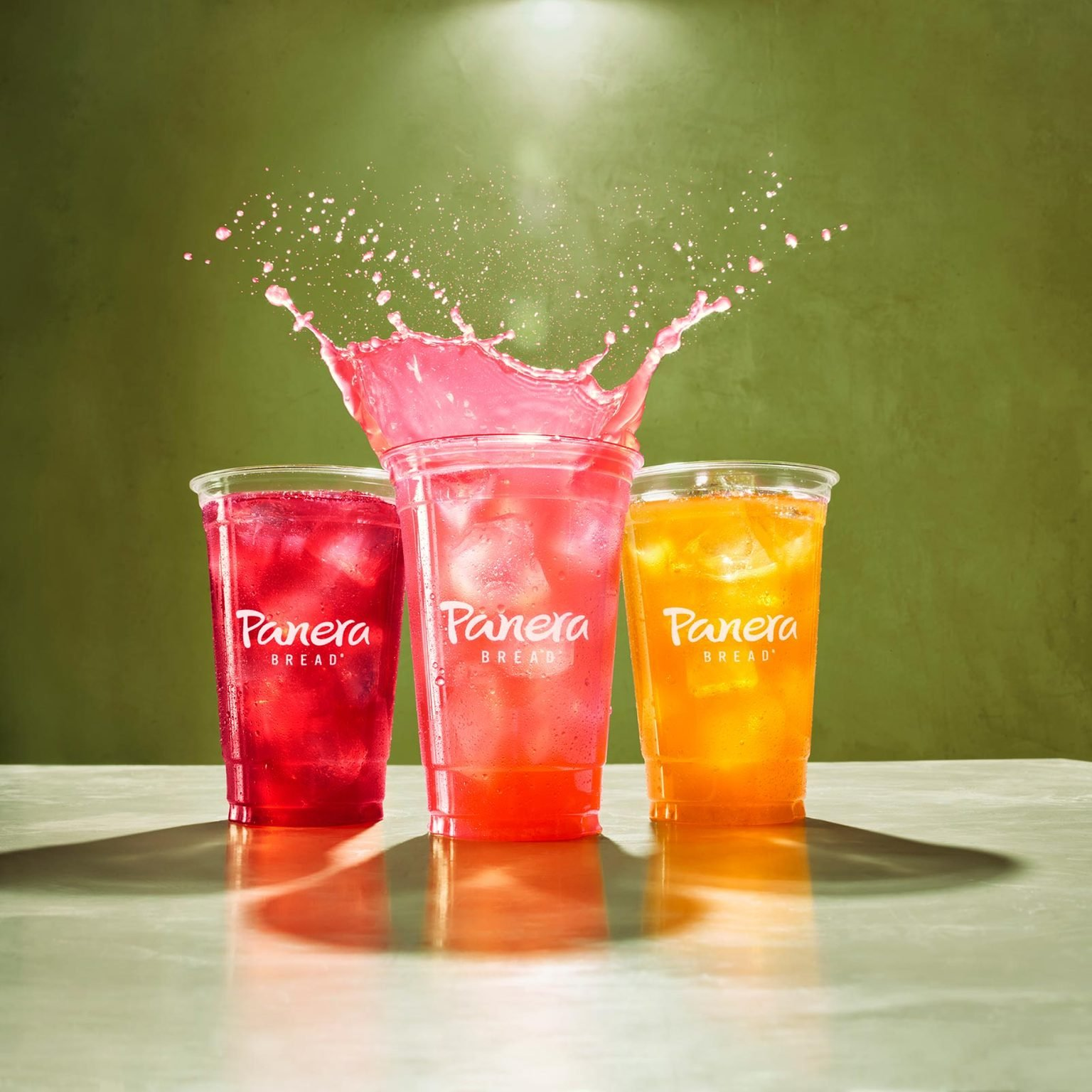Bill Wang - Week 9 - Mango Yuzu Citrus Charged Lemonade
You’ve probably heard of snake venom, sulfuric acid, pesticides, mercury, or pumpkin spice lattes. Hopefully, you also recognize these to be liquids that you really shouldn’t drink (unless someone DOUBLE dares you, in which case you might as well).
Now, as the circumstances dictate, I suggest that we must append one more poison to our list of no-nos.
A cup of coffee has 95 milligrams of caffeine. By comparison, a large Mango Yuzu Citrus Charged Lemonade has 390 milligrams of caffeine AND 124 grams of sugar! Not to mention, free refills.
However, according to the Panera Bread menu website, a Charged Lemonade contains about 260 mg of caffeine, and 74 grams of sugar, not mentioning that these are the statistics when ice is added.
In late 2022, Sarah Katz, a 21-year-old college student, who happened to have a history of heart problems, experienced cardiac arrest several hours after drinking several cups of the Charged Lemonade.
Her family brought a lawsuit against Panera Bread, claiming that the drink was offered side-by-side with other non-caffeinated drinks. It was also advertised as a healthy drink that contained the same amount of caffeine as the restaurant's coffee, not mentioning how much of the coffee the advertisement was comparing the drink to.
On October 9, Dennis Brown experienced a cardiac arrest while walking home, bringing a second lawsuit.
The new lawsuit points out that the drink is mixed in-store, meaning that the caffeine amount could be inaccurate and vary from store to store.
Also, the drink poses risks to children pregnant, and breastfeeding women, alongside individuals sensitive to caffeine.
Whether the two deaths are the fault of the victims or not, I feel like Panera Bread should face liability. The American Heart Association states that the recommended amount of added sugars for the average man should be no more than 36g, and for women, 25g. The daily value on nutrition labels extends this to 50g. A single large Charged Lemonade has 250% of what should be a limit on added sugar intake and contains 500% of the healthy intake of added sugar for women. Furthermore, unlimited refills incentivize customers to drink even more.
Both caffeine and sugar have addictive properties, and Charged Lemonade seems to be an attempt to utilize such properties, proving Panera Bread’s false claims of being “healthy” to be both hypocritical and an attempt to capitalize on the modern health movement ironically spawned by similarly predatory corporate strategies.
(More about the Mango Yuzu Citrus Charged Lemonade)
https://time.com/6343483/panera-bread-charged-lemonade-wrongful-death-lawsuit/
https://www.cbsnews.com/news/how-much-caffeine-health-effects/



Hi Bill! Your blog was a very interesting read, particularly because it shows how corporate companies can get away with harming their customers in order to make a quick profit. Panera Bread is a great example of this because their mission statement is “One Panera for a Healthier and Happier World,” which seems extremely hypocritical because of how one of their drinks has caused at least a minimum of two deaths. For a restaurant that champions healthy nutrition habits, Panera sells a lot of unhealthy food, such as the Mango Yuzu Citrus Charges Lemonade mentioned in your blog. Unfortunately, Panera Bread isn’t the only company that prioritizes profits over the quality of their products. For example, Whole Foods is notorious for promoting better eating habits, but there has recently been many cases of Whole Foods selling expired food, and harming the health of their customers. Because of how competitive American capitalism is, many corporate companies prioritize make profits more than providing products of quality, and the cost of this selfish but popular business practice is the reason people are losing their lives. Corporate companies, just like Panera Bread, have too much power over their customers, and this has horrible effects, such as the deaths of Sarah Katz and Dennis Brown, who weren’t even aware of how much caffeine they were consuming because the company failed to be candid about the products they sell. This is only one example of how too much power is bad for anyone to have.
ReplyDeleteHey Bill! I love how you introduced the lemonade as severely dangerous by including it in a list with "snake venom, sulfuric acid, pesticides, mercury, [and] pumpkin spice lattes." By doing this, you successfully set the tone for the rest of your blog. The first paragraph contains a rather informal tone which is countered by incorporating statistics comparing the amount of caffeine in a cup of coffee and a large Mango Yuzu Citrus Charged Lemonade, depicting a staggering and startling difference. Including an example of the late Sarah Katz and Dennis Brown who both went into cardiac arrest after drinking the lemonade helps communicate the gravity of the situation you are discussing. For a non-alcoholic drink to be dangerous to pregnant and breastfeeding women speaks volumes about the dangers of excessive amounts of caffeine and sugar, and the fact that it is authorized by Panera Bread raises questions about the possible dangers of other cuisine offered there. Unfortunately, Panera Bread is not the only example of a large corporation that provides unauthorized and unethical products. Corporate businesses hold an immense amount of power over consumers, that allows for dangers like these to be normalized.
ReplyDeleteThis comment has been removed by the author.
ReplyDeleteHi Bill,
ReplyDeleteYour blog was interesting to read as it caused me to think about the potential dangers of seemingly harmless beverages. The comparison between the caffeine content in a regular cup of coffee and Panera’s Mango Yuzu Citrus Charged Lemonade is astonishing. Personally, I drink various beverages frequently, my favorite being an iced caramel macchiato, although I never realized the extent of caffeine and sugar in some drinks, especially when the advertising suggests otherwise. It’s safe to conclude that customers should not blindly trust advertisements or other promotions, which many people do. The case of Sarah Katz and Dennis Brown mentioned in your blog adds a sensitive touch to the topic, making it more relatable and concerning. It’s alarming to find out about Panera Bread and the incongruities in caffeine amounts due to in-store mixing. The potential risks you mentioned raise serious concerns about the responsibilities and morals of companies in marketing such beverages. Your analysis of Panera Bread’s choice to capitalize on health trends while compromising customers’ well-being is a serious issue. Your blog serves as a reminder, as customers, to be vigilant and aware of the ingredients and contents in the food we eat and the beverages we drink.
Hello Bill! I really like this post because I try to be the family health nut as much as I can. As of late, my little brother has been hooked on boba tea, despite all of the sugar that they keep in it. There are infographics out there that describe the condition of these drinks better, but 124 grams of sugar represents almost an entire quarter of the mass of the drink. Obviously, something is very wrong with the drink in terms of the sugar levels. More than ever, there are studies being conducted by researchers today finding younger people with high blood sugar levels, cavities, and obesity, the very symptoms common to these types of extremely sugary drinks. Moreover, it accelerates America's already large problem with increasing obesity rates. Often, these businesses opt to use artificial sweeteners instead of sugars to cut costs, which further reduces the nutritional value of these drinks. Unlike natural sources of sugar, these artificial sweeteners may have fewer calories of energy, but don’t have beneficial nutrients like vitamins, fiber, minerals or antioxidants. Additionally, they pose their own hazards, from weight gain to cancer. It's time that these overly sugary and caffeinated drinks have greater regulations, and more people learn about the surprising amount of sugars, both of the natural and artificial kind and become educated on the dangers that these drinks pose to our health.
ReplyDeleteHi Bill, I think it is interesting how you used power in a literal sense. Usually when talking about power I think of abstract ideas such as the power of friendship, of hope, etc. Instead you chose to write about the power of caffeine and the dangers of it. I remember once I saw an Instagram reel of a girl drinking these charger lemonades everyday, the comments under the post were all warning her to tone it down because that much caffiene and sugar at once is not good for you. But she later responded to the backlash that she is healthy plus it drink is too good to give up. It is packed with sugar and caffeine leading to addiction that could be seriously dangerous over a long period of time. The ability to refill does not help either because such an addicting drink will defenity call customers to refill their cup mutiple times. I hope Panera solves this issue soon and find a healthier subsitute for the drink.
ReplyDeleteHey Bill, I believe it was extremely vital that you included the exception that if someone "DOUBLE dares you" when considering drinking a potentially harmful substance. It's crucial that the double dare standard is upheld at all times. I heard about this topic in a YouTube video around a month ago and honestly it is just really sad. Something extremely avoidable happened as a result of Panera's negligence, and even after one report of cardiac arrest, they still failed to do anything about it, ultimately leading to another. I'd assume that with all of the publicity they've been getting they must have either taken the drink off the menu or labeled it as a heavily caffeinated drink (hopefully). I agree with you that Panera should be held accountable for their actions, and hopefully they are. You did very well at telling the story behind the two lawsuits and summarizing the entire situation as a whole. Great job!
ReplyDelete